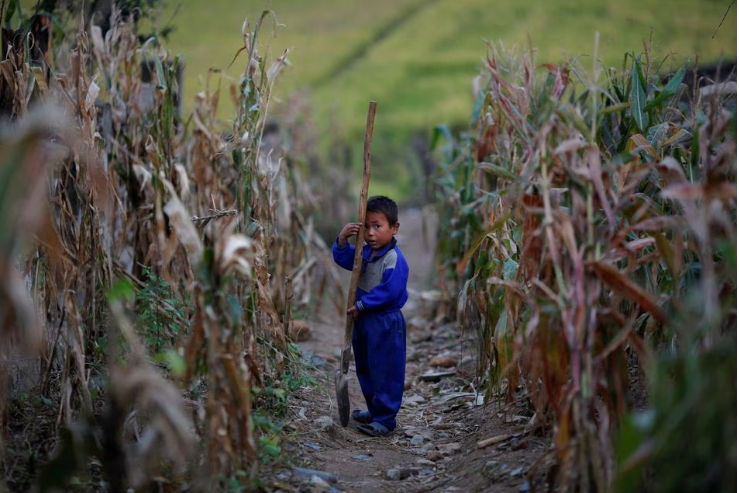
(Reuters) – A North Korean food crisis appears to have deteriorated, South Korea said on Wednesday, as a newspaper reported that North Korea has cut rations to its soldiers for the first time in more than two decades.
North Korea has effectively acknowledged serious food shortages, South Korea’s unification ministry said, referring to a North Korean state media report this month about plans for an “urgent” ruling party meeting on agriculture. “Its food situation seems to have deteriorated,” the South’s unification ministry, which handles relations with North Korea, said in a statement.
North Korea has over recent decades suffered serious food shortages, including famine in the 1990s, often a result of natural disasters such as floods damaging harvests.
The isolated country is under strict international sanctions over its nuclear weapons and ballistic missile programmes and in recent years its limited border trade was virtually choked off by self-imposed lockdowns aimed at preventing COVID-19. South Korea’s DongA Ilbo newspaper said on Wednesday that North Korea has reduced daily food rations to its soldiers for the first time since 2000, citing an unidentified senior South Korean official.
The unification ministry said it could not confirm details of the media report but it and other agencies were monitoring the situation.
North Korea’s state news agency KCNA reported on Feb. 6 that the Workers’ Party of Korea had called a meeting of the party’s Central Committee for late February for the “very important and urgent task to establish the correct strategy for the development of agriculture”. The South’s unification ministry said it was rare for North Korea to call such a special meeting.
Last month, the U.S.-based monitoring group 38 North said North Korea’s “food availability has likely fallen below the bare minimum with regard to human needs”, with food insecurity at its worst since the famines of the 1990s.
South Korea’s Unification Minister Kwon Young-se said recent North Korean media reports of leader Kim Jong Un’s daughter appearing at state functions could be aimed at drumming up unity and shoring up loyalty to the ruling family amid deepening humanitarian woes.






